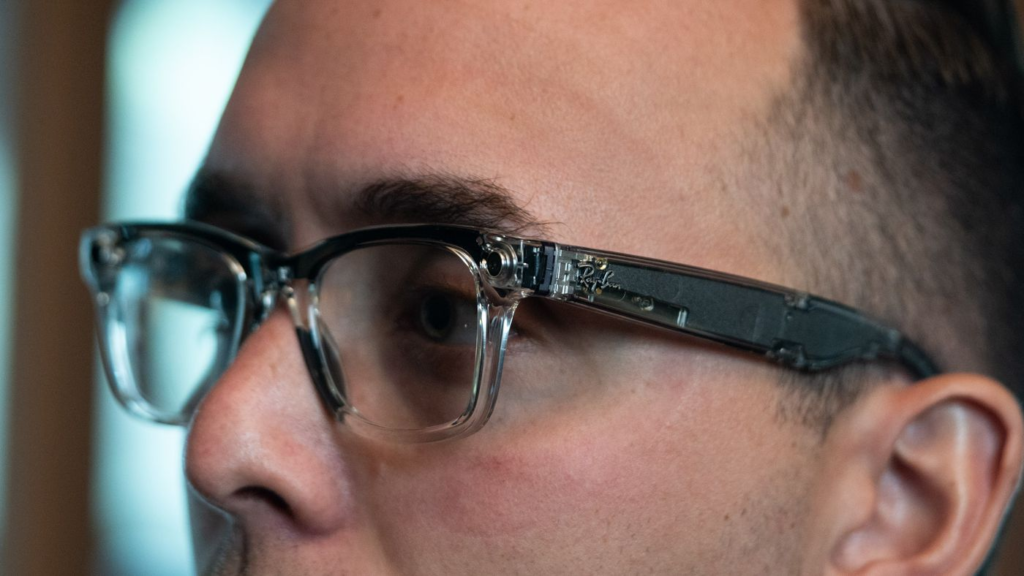Meta is innovating within technology by intending to change smartphones with glasses equipped with cameras. At the latest Meta Connect conference in Menlo Park, the tech giant teased a future in which individuals wear facial cameras. At the conference, there was a range of products on display, which included the recently updated Ray-Ban Meta smart glasses, the Quest 3S virtual reality headset, and Meta’s prototype Orion AR glasses. Meta’s vision is clear: Just as phones are commonplace, so could cameras be, and glasses could become the successors to handheld devices.
Reactions to Meta’s goals for these smart glasses have been a mixture of opinions. In reporting, The Verge reported that CEO Mark Zuckerberg insisted sales of the Ray-Ban Meta glasses, launched as a development from 2021’s Ray-Ban Stories, were “going very well.” Although the glasses currently lack the ability for full augmented reality (AR) functionality, such as presenting data on a screen, they do have artificial intelligence and are designed to help users easily share their lives online.
Ubiquity and Unease
While exploring Meta’s campus, the popularity of these Ray-Ban glasses bore notice. The glasses are available in iconic Ray-Ban styles but are unique by virtue of their dual 12MP ultrawide cameras positioned on either side of the frame. The glasses highlight a small indicator light when they are recording, letting those in the vicinity know that footage is underway. This feature is meant to theoretically reassure onlookers that their privacy is secure.
However, the abundance of wearable cameras can cause a feeling of unease. Feelings of unease can come from just the possibility of being documented. In meetings or more casual dialogues, both employees and visitors indicated a desire to be aware, uncertain if they were under recording. The indicator light does offer some amount of transparency, but the psychological impact of continual observation remains seemingly in the background.
Substantially, the experience changes when donning the glasses themselves. Users can now capture effortless snapshots of their area instead of feeling hyper-conscious about recording. A straightforward push of a button provides them the ability to record from their own angle (before attempting to get a smartphone). This idea has an attractive quality, but it also raises unresolved questions about privacy and consent.
Privacy Concerns and Ethical Dilemmas
Wearable cameras have been in existence for a while. When Snap brought out Spectacles in 2016, it revealed a like concept, and although they did not find extensive success, they illustrated the potential for hands-free recording. The involvement of Meta in the space may result in a vast scale of adoption, generating both thrill and worry. These glasses eliminate the difficulty of capturing personal moments, such as how a child candidly reacts or unplanned gatherings, but they also evoke important privacy considerations.

Camera phones are already having a social impact, evident in the documentation of important events such as police encounters as well as more quotidian, and sometimes uninvited, moments shared across the internet. With Ray-Ban glasses, Meta is making the barrier even more manageable. The thought that anyone, everywhere, can click a picture without needing a phone makes the possibility of privacy infringements even more urgent. As these technologies gain traction, it becomes more conceivable that you could appear in someone’s video or online posting, all without realizing it.
The integration of cameras in glasses by Meta generates functional concerns. The process of moving to smart glasses is a challenge for those who depend on prescription glasses. With the possibility of donning these glasses in contexts where recording is inappropriate, for example, in private bathrooms, users might reconsider if these devices are fit for daily use. Although the Ray-Ban Meta eyewear currently acts as sunglasses, the availability of clear and transition lens versions suggests that Meta sees them becoming a more lasting accessory down the line.
The Future of Camera Glasses
The vision for the future Meta imagines isn’t assured; the mainstreaming of smart glasses has yet to happen. In spite of the enjoyment and thrill that wearing the Ray-Ban Meta glasses provides the organization is still wrestling with doubt about whether consumers will take to these devices. These glasses deliver convenience and uninterrupted documentation; however, there are ethical considerations that are still under-addressed. It is clear that Meta is making a sincere effort to mainstream smart glasses, but the process is far from finished. Their camera-filled future gives insight into a landscape where privacy turns into an ever more disputed space. We will need to wait to see if the public embraces the vision of Meta and adopts these devices in their everyday life.





